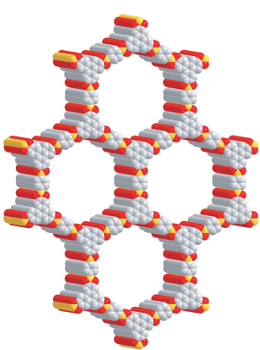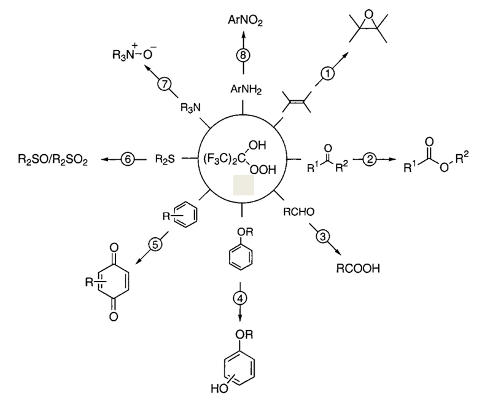Metal-free oxidation catalysts in covalent organic frameworks
Metal-free oxidation catalysts in covalent organic frameworks
Promotor(en): V. Van Speybroeck, P. Van der Voort /MM_14_NANO_13 / Nanoporous materialsOxidation reactions are key in the chemical industry. Total oxidations of waste products are a common way to avoid emission of toxic streams. Selective oxidations producing various products and intermediates such as alcohols aldehydes, epoxides,… are of even greater importance. Most catalysts for both total oxidation and selective oxidation are (transition) metal-based making them relatively expensive. Moreover the possible leaching of metals, thus polluting the product stream is a critical downside.

Figure 1 Covalent organic frameworks are intrinsically porous polymersTherefor this thesis subject will be focused on designing a heterogeneous, metal-free catalyst for a selective oxidation reaction (some examples are shown in figure 2). The carrier material used will be a covalent organic framework, this is an intrinsically porous polymer which has many opportunities to serve as a support. Fluoroketones have proven their value in metal-free oxidation reactions in the past. These catalysts have a very specific electronic structure that allows the activation of oxygen donors such as hydrogen peroxide. When immobilizing these structures this electronic structure could be modified rendering the catalyst less active. Using ab initio techniques we will aim to provide a usable grafting procedure aiming to keep or even increase the activity of the catalyst.

Figure 2. Possible oxidations with fluoroketones as a catalystThe goal of this thesis is finding the mechanism of the oxidation with fluoroketones, followed by investigating various grafting procedures and their effect on the behavior of the eventual catalyst. Depending on the interest of the student, an experimental part can be included in the thesis, where the proposed grafting procedure will be tested in practice.
- Study programmeMaster of Science in Engineering Physics [EMPHYS]


